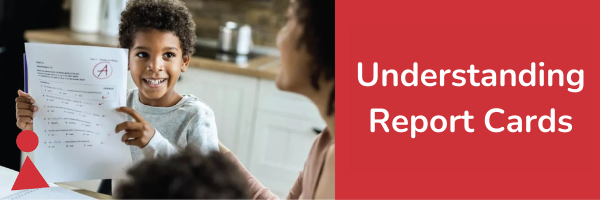It's report card time again!
Sometimes, deciphering the language on your child's report card can be a bit of a challenge.
Take heart in knowing that teachers spend a lot of time writing those reports to give you a clear snapshot of your child's achievements. Teachers need to base their report card marks and comments on what your child demonstrates; they don't "guess"!
In Ontario, we now have two "full size" report cards and a progress report that comes home the beginning of November. Keep in mind that different school boards may vary somewhat in their expectations of the exact language that is used on those reports. However, all teachers have their report cards read over by their school principals to make sure that the language in those reports jives with the student's progress. In particular, the mark and comment must coincide. Teachers are also required to include a strength for each child in each subject, a weakness, and a next step.
Read your child's report card carefully
The first comment should be his/her strength, the next section should address his/her weakness. Weakness is used to describe an area in which the child can strive for improvement. Regardless of how well your child is doing, we all have things in our lives upon which we can improve! The "next step" should tie into that weakness. It will provide steps your child can take, with the help of teachers and parents, to improve that area of academics that may need some tweaking.
Teachers are instructed to pay a lot of attention to the "qualifiers" used to describe a student's achievement. Keep in mind that qualifiers may vary from board to board. Here are some examples:
| Level 1 | Level 2 | Level 3 | Level 4 |
|---|---|---|---|
| Unclear | Partial | Substantial | Sophisticated |
| Minimal | Developing | Extensive | Comprehensive |
Although teachers are marking students with levels 1,2, 3 and 4 you have no doubt noticed that report cards still have A, B, C, etc. The big thing to remember for parents is that report cards should not come as a shock! Good home-school communication is critical to your child's success. Often, teachers will incorporate suggestions into a child's "next steps" that involve the home. An example of that might be "Continue to read at home with your child" or " Lucy is encouraged to review her multiplication tables at home". Parent-teacher interviews are the time to touch base with your child's teacher and to clarify anything that you may find confusing. If it's true that it takes a village to raise a child, so too does it take a strong home-school bond to provide every child with a foundation to reach his/her maximum potential!








.png)